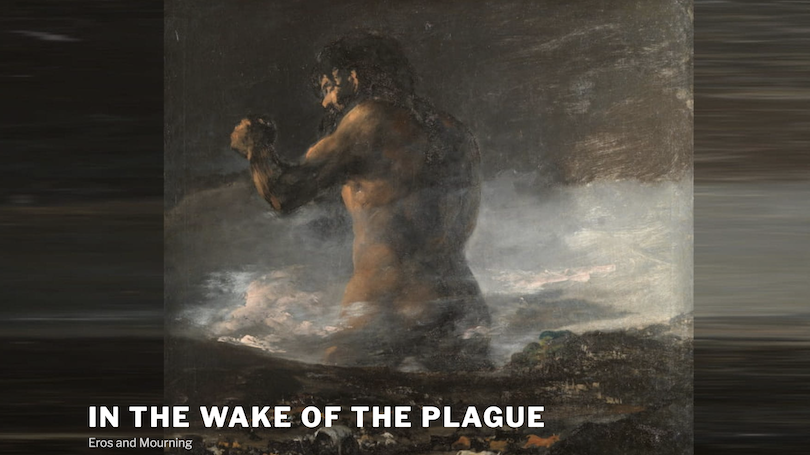
- Undergraduate
- Foreign Study
- Opportunities
- Inclusivity
- News & Events
- People
Back to Top Nav
Back to Top Nav
Back to Top Nav
"In the Wake of the Plague: Eros and Mourning" was an interdisciplinary symposium that took place on April 21-24, 2022, and adopted philosophical, aesthetic (literary, film, theater, music), classical, political, medical, and clinical perspectives on love and loss during a time of plagues. At a time when there are numerous scientific surveys and governmental prognostications about COVID-19, there are still relatively few events dedicated to the subjective toll of the virus and, especially, the ways in which the geopolitical transformations that have resulted from it have already changed the nature of subjective experience. The operative assumption of this symposium is that because our situation today is unprecedented, such an inquiry calls for an urgent reassessment of the categories of modern thought and therefore offers a unique opportunity for collaboration between philosophy, science, and the humanities to conceive of the possible new coordinates of our world today. In light of the converging crises of COVID, racial violence, resurgent nationalism, and environmental collapse, what is now possible for human beings? Despite the pervasive suffering that assails our world in the wake of the plague, is there a way that these very energies of loss and grief could lead to the reconstitution of social bonds? What can we learn from the perspective and by contrast with ancient Greek understandings of the complex interlinkage of the plague with civil strife and mass mourning?
"In the Wake of the Plague" staged an intervention into the current global crisis in three distinct forms:
Here is a listing of keynotes, panels, and other conference activities, as well as the conference program.